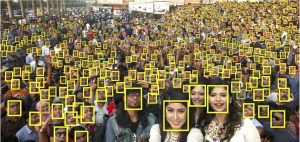I just spent two days at a grassroots conference in Arlington, VA with people from around the country and overseas. It was called “Teaching A.I. in K-12”, a subgroup of AAAI 2019 Fall Symposium series. The 75 members at the conference were researchers, college professors, K-12 educators, industry experts, software developers, A.I. programmers, business owners, change agents in diversity, and non-profit leaders. Anyone who could bring added value to the conversation was there. Kudos to the AI4K12 Initiative team
- David Touretzky, Carnegie Mellon University (chair)
- Christina Gardner-McCune, University of Florida (co-chair)
- Fred Martin, University of Masachusetts Lowell, past CSTA board chair
- Deborah Seehorn, CSTA
that put this conference together. It was one of the most well run, well planned, and well received conferences I have attended.
A few interesting takeaways from the conference…..

Safe Drinking Water
That was cool because it addresses the pedagogical side of CS and A.I. education.

Inherent ethical issues with facial recognition. It assumes good training and model creation.
NSF Program Director, Chia Shen, jokingly put up an empty slide and said she wanted to share with us some details about the current research in A.I. K-12 education. Then she said, “Thank you”. There is no research. We need it. We need people to explore, experiment, create, build, define, understand…not only A.I. , but how we get A.I. into the hands and minds of the current generation. Microsoft presented about an amazing STEM collaboration with NASA they are letting students use live data and big data along with data science. Data Science is yet another discussion we need to be having but with our math teachers; it needs to be part of the core math curriculum.
In A.I. and M.L., we have a chance to help define what is taught, when it is taught, and why it is taught. But equally important, if not more important, is that we are also having the discussion of how it is taught. We are talking about pedagogy as a forethought, not as an afterthought.
What we have found out in K-12 with Computer Science is that it is received best when students are interacting with it through hands-on projects in student-centric learning environments. The various technologies that we use to are so engaging and interactive that students respond best when their learning reflects that same energy. The entire CS AP Principles, one of the most successful curricular rollouts ever, embraces this philosophy. We can extend that into A.I.
So where are we with A.I. in K12? It is clear that challenges we face involve the lack of tools, the high level of math needed to understand the algorithms, access by underrepresented student populations, a general understanding of what A.I. and M.L. (machine learning) are, the ethical dilemmas that are inherent in M.L., and the programming skills needed to implement A.I.
I am studying A.I. and M.L. every free moment I have. I am exploring it with my students in my CS classes at school. I am reading books, articles, taking classes, partnering with A.I. professionals, going to A.I. conferences, presenting about A.I. , and trying to understand something that was not really even accessible or even practical to know until a few years ago.
The AI4K12 Initiative has proposed a set of 5 big ideas in Artificial Intelligence modeled after the 7 Big ideas in Computer Science. A.I. and C.S. must be core subjects in our schools in the same ways as language, math, and science. And not just a senior elective, but as a regular part of school K-12. There has to be common knowledge and understanding that the average person understands; we cannot let A.I. be A.I. for the academic elite, it has to be A.I. for all(or at least many).
Some of the ideas I talk about here I also address in my book, if the topic of project-based CS interests you.
The conversation has started. Go get a book, take a class, read an article, watch a Youtube video, type in a few lines of code, or simply ask a question. Get started….
—————————————————————————————————————
A few cool things you can check out
What ethical dilemmas are in A.I? http://moralmachine.mit.edu/ and https://towardsdatascience.com/how-ethical-is-facial-recognition-technology-8104db2cb81b
What is A.I. and can I explore and experiment with it? https://teachablemachine.withgoogle.com/
Wanna really dive deep in Neural networks? Yep, check this out.
PHOTO COPYRIGHT
https://appinventor.mit.edu/explore/about-us.html
https://becominghuman.ai/face-detection-models-and-softwares-42b562a8e151
